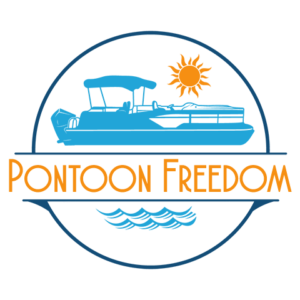When it comes to maximizing the performance and enjoyment of your pontoon boat, selecting the appropriate motor size is crucial. The motor is the heart of your boat, providing the necessary power to navigate through the water with ease. In this blog post, we will guide you through the factors to consider when determining the ideal motor size for your pontoon boat, ensuring a smooth and exhilarating boating experience every time.
Consider Boat Size and Weight
The size and weight of your pontoon boat play a significant role in determining the motor size required. As a general rule, larger and heavier pontoon boats will need more horsepower to achieve optimal performance. Consider the length and width of your boat, as well as any additional weight from passengers, equipment, and amenities. Refer to the boat manufacturer’s specifications and recommendations to get a better idea of the appropriate motor size range for your specific pontoon boat.
Determine Speed Expectations
Your desired speed and overall performance expectations should also guide your motor size decision. If you prefer a leisurely pace and are content with moderate speeds, a smaller motor with lower horsepower will likely meet your needs. On the other hand, if you crave exhilarating speed and swift acceleration, a larger motor with higher horsepower will be required to achieve those thrilling experiences on the water.
| Pontoon Boat Length | Motor HP Recommended | Avg Top Speed (MPH) | Estimated MPG |
|---|---|---|---|
| Under 16″ | 10-40 HP | 10-20 | 4-8 |
| 17′ to 20′ | 25 – 75 HP | 15-30 | 5-12 |
| 21′ to 24′ | 50 – 150 HP | 20-35 | 6-15 |
| 25′ to 28′ | 115 – 200 HP | 25-40 | 8-18 |
| 29′ and above | 150+ HP | 30+ | 10+ |
Think About Intended Usage
The type of activities you plan to engage in with your pontoon boat will also influence your motor size choice. If you primarily use your boat for leisurely cruising, entertaining guests, and relaxing on the water, a smaller motor with moderate horsepower may suffice. However, if you enjoy watersports like tubing, skiing, or wakeboarding, a more powerful motor will be necessary to provide the required thrust and acceleration.
Consider Water Conditions
The typical water conditions in which you plan to operate your pontoon boat are essential to factor in when selecting a motor size. If you often navigate in calm lakes or rivers, a smaller motor may be suitable. However, if you frequently encounter rougher waters or plan to venture into coastal areas with stronger currents, a larger motor with greater horsepower will provide the necessary control and maneuverability.
Seek Professional Advice
If you are uncertain about the appropriate motor size for your pontoon boat, it is always wise to consult with professionals in the boating industry. Experienced boat dealers, manufacturers, or marine mechanics can offer valuable insights and recommendations based on your specific pontoon boat model, usage requirements, and local water conditions. They can help you make an informed decision, ensuring that you select a motor size that aligns perfectly with your boating aspirations.
Conclusion
Choosing the right motor size for your pontoon boat is a critical decision that directly impacts your boating experience. By considering factors such as boat size and weight, intended usage, water conditions, and speed expectations, you can make an informed choice that ensures optimal performance and enjoyment on the water. Remember, seeking guidance from boating professionals will provide valuable expertise and support in selecting the ideal motor size for your specific pontoon boat. So, take the time to research, evaluate your needs, and make an investment that will enhance your pontoon boat adventures for years to come.
